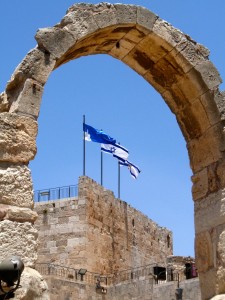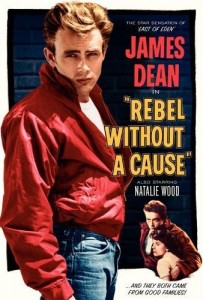Each year, various groups and individuals seek to politicize the memory of Martin Luther King, on the national holiday in his honor.
So I will, too.
Perhaps a little-known fact about “MLK” is that he was a strong supporter of the Jewish state. In Israel, he saw hope for the future, and a sparkling democracy — though perhaps still fledgling at the time. His affinity for Zionism still inspires, and in some ways, puts his legacy at odds with some of his “successors/hangers-on” who today identify with the Palestinian narrative.
During the riots in Ferguson, Palestinian Muslim infiltrators (there is no other word) came alongside blacks with the message: “We are all brown-skinned brothers who are being persecuted by a ruling majority.” It was just another brick in the long road of Muslim propaganda, designed to dupe well-meaning, even legitimately persecuted minorities.
Soviet-style propaganda gained traction with “revolutionaries” like Yasser Arafat, who saw the value in duping Westerners, to support his macabre vision for the future…that didn’t include Israel.
The Rev. Martin Luther King, Jr. was not such a person. The Civil Rights icon was a clear-eyed visionary, and his discernment about friends and foes would have been a moral compass for his own followers, had he lived.
Other men forever linked with King include the Kennedy brothers, Jack and Bobby.

Both were admirers of Israel; a young John Kennedy visited Palestine in 1939; his brother followed after statehood. They recognized the potential in this new outpost in the Middle East, and both brothers had traveled extensively abroad, no doubt adding to their discernment about the world they would soon lead.
King, in that tumultuous decade of the ‘60s, said of Israel:
“The whole world must see that Israel must exist and has the right to exist, and is one of the great outposts of democracy in the world.”
He also understood the need for Israel’s right to self-defense:
“Peace for Israel means security, and we must stand with all our might to protect its right to exist, its territorial integrity. I see Israel as one of the great outposts of democracy in the world, and a marvelous example of what can be done, how desert land can be transformed into an oasis of brotherhood and democracy. Peace for Israel means security and that security must be a reality.”
Interestingly, King foresaw a problem that seemingly plagues much of the world today (including, incredibly, some American evangelical leadership):
“When people criticize Zionists they mean Jews, you are talking anti-Semitism.” His attorney, Clarence B. Jones, elaborated:
“Martin… warned repeatedly that anti-Semitism would soon be disguised as anti-Zionism.”
That in fact is where we are today, with even a segment of King’s modern community, clergy, being infected with such attitudes. Note the number of such people today, including folks like Brian McLaren, who will publish tributes to King at the same time they write often of their displeasure with Zionism.
For the record, Zionism is a biblical term describing Israel, the Jews, or Jerusalem, but in modern parlance it is more of a political term. Simply put, it is the game-changing idea that Jews have a right to settle their ancient homeland and remain a sovereign nation.
King understood this, which makes him a man for all time.

